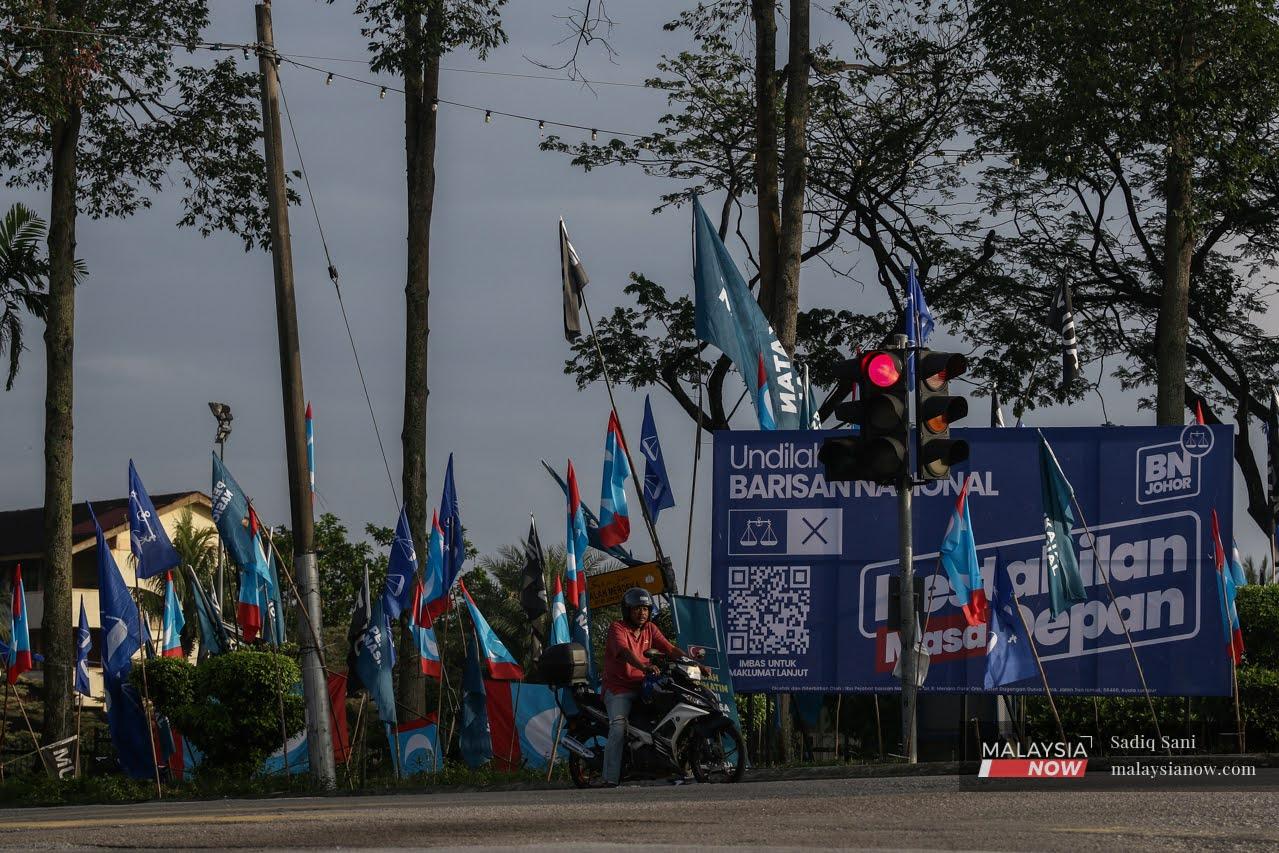Return to negotiating table or expect Melaka-Johor repeat at GE15, anti-Umno forces told
The voting pattern at the Melaka and Johor elections might have been very different if it had been a one-on-one contest, analysts say.
Just In
Barisan Nasional (BN) would not have been able to pull off its victory at the recent Johor state election if it had faced a united opposition front, analysts say.
Ilham Centre, which actively monitors elections, said split votes among the opposition had given BN 19 of its 40 seats in the state legislative assembly: Kemelah, Tenang, Bukit Pasir, Gambir, Serom, Bukit Naning, Sungai Balang, Semerah, Parit Yaani, Senggarang, Rengit, Mahkota, Tenggaroh, Tiram, Permas, Larkin, Kempas, Kota Iskandar and Bukit Permai.
The centre’s executive director Hisommudin Bakar said BN had in fact received only 599,753 votes or 43.11%, meaning that 826,820 or 56.89% of voters had not supported the coalition while another 1.17 million were no-shows.
Perikatan Nasional (PN) won three seats with 334,457 votes or 24.04% while Pakatan Harapan (PH) won 11 with 284,969 (20.48%) of the popular vote.
If the two blocs had joined forces, they would have received 45.52% of the popular vote – far more than what was obtained by BN.
This is without taking into account other parties which contested the March 12 election such as Muda, Pejuang and Warisan.
The split in votes was similar to that experienced by the Malay community at the 14th general election where three-way fights took place between BN, PH and PAS.
Hisommudin said the split in opposition at the Johor election was a serious matter given the percentage of popular vote that did not go to BN.
“The voting pattern at the Melaka and Johor elections might have been very different if it had been a one-on-one contest,” he told MalaysiaNow. “That would have minimised the voters’ options, forcing them to choose either of two blocs.
“Given such a situation, BN would appear to depend solely on the votes from hardcore Umno supporters while the opposition has rational voters, including those from more dynamic segments.”
Going by the results of the election on Saturday, he said, the opposition vote had gone to a variety of groups including the Malay-Islam bloc represented by PAS and Bersatu, the youth voters and the non-Malays able to challenge BN’s dominance.
FPTP system, still relevant?
Hisomuddin suggested the use of the popular vote as a yardstick and another system to replace the first-past-the-post (FPTP) method used in Malaysian elections.
Through this system, he said, candidates who receive the most votes win the seat even if he or she obtains less than 50% of the total votes.
This happens when there are more than two candidates fighting for the same seat.
“With redelineation, things become imbalanced because the representative in the Perling state constituency, for example, has to take care of 101,263 voters compared to Benut which has only 28,165,” he said.
While the shortcomings of the FPTP system have been discussed in an academic sense, he added, it would require the will of policymakers for any change to take place.
Hisommudin said the impact of systemic changes on the political dominance of certain parties, and the increase in seats according to race would be the problem standing in the way of change in the existing system.
For Shamsul Amari Baharuddin of Universiti Kebangsaan Malaysia, the question of the popular vote has no relevance in a representative democracy which operates through the FPTP system.
“Each seat won through a majority of votes is legitimate for the formation of a government,” he said.
“This system has been accepted and applies not only to winners from the ruling bloc, but candidates from the opposition who win as well.”
Shamsul said the popular vote is relevant for parties in planning the future mobilisation of people in order to attract voters.
He said talk on the FPTP system that arose after BN’s victory had been hyped up, as if to hide the embarrassment of the losing side.
“Why was the number of Pakatan Harapan voters in Penang and Selangor at the 14th general election in 2018 not raised?” he asked.
Hisommudin meanwhile said the opposition had no choice but to return to the negotiating table.
“Egos and the principle of pushing and jostling among one another need to be put aside so that a formula and strategy can be found to halt BN’s momentum in its march to Putrajaya,” he said.
Adding that PH had lost the Malay vote and was now highly dependent on the Chinese vote, he said PN on the other hand had the support of the Malays but not of non-Malays.
“The opposition leaders need to come up with a united agenda to defeat BN.
“If they cannot, then at GE15 we will see the same voting pattern that took place in Melaka and Johor.”
Subscribe to our newsletter
To be updated with all the latest news and analyses daily.
